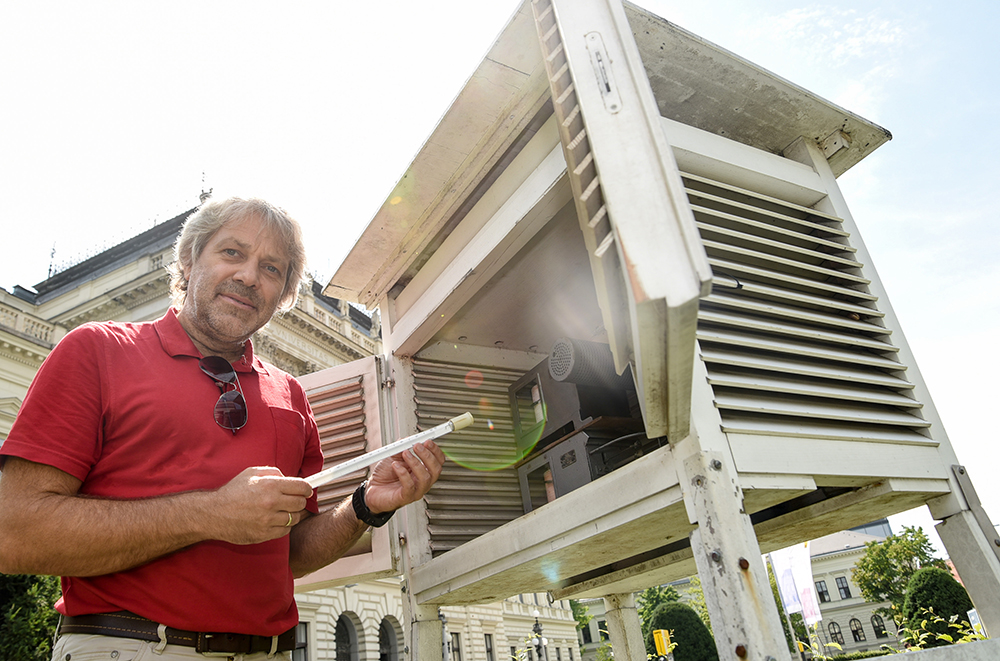Viele sahen gestern Dienstag rot. Sahara-Staub tauchte das Land in ein rötlich-oranges Licht. „In dieser Intensität handelt es sich um ein seltenes Ereignis“, schildert Ulrich Foelsche, Meteorologe am Institut für Physik.
Verantwortlich für das Phänomen ist ein aktuelles Mittelmeertief. Feinste Partikel wurden in Afrika hochgewirbelt und von Winden in einer Höhe zwischen 2000 und 6000 Metern tausende Kilometer weit nach Europa transportiert. „Eine gute Quelle bilden feinkörnige Ablagerungen in der Bodélé-Depression im Tschad, Überbleibsel des einst riesigen Sees, sowie die El Djouf-Region in Mauretanien“, weiß Foelsche.
Zig-Tonnen können dann in den Wolken liegen. Studien haben ergeben, dass jährlich zwischen 200 und 400 Millionen Tonnen Staub über den Globus befördert werden. Bis zu 40 Millionen Tonnen fliegen allein über den Atlantik und landen im Amazonas-Gebiet. „In diesem an Nährstoffen armen Gebiet bildet der Sahara-Staub einen wichtigen Dünger“, so der Experte. Hierzulande ärgert man sich höchstens über Sand auf Auto oder Terrasse. Fürs Klima selbst spielt das Wolkenspektakel keine Rolle, zerstreut Foelsche Sorgen. Einzig auf Schnee und Gletschern löst die dunkle Oberfläche eine stärkere Schmelze aus. Das führte übrigens einst dazu, dass das Eis am Tisenjoch zwischen Nord- und Südtirol taute und Ötzi zum Vorschein kam, erinnert Ulrich Foelsche.
Und einen interessanten Blick zurück eröffnet der Forscher: „Eisbohrkerne in Grönland haben gezeigt, dass es in besonders kalten Zeiten viel staubiger als heute war.“
Und abschließend ein Blick in die Zukunft. Trifft die Prognose der Zentralanstalt für Meteorologie und Geodynamik zu, ist mit weiterem Sahara-Staub vor allem im Westen Österreichs zu rechnen.
